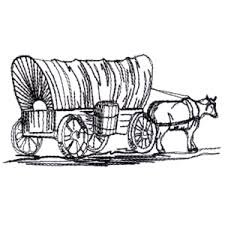Pioneer Story
The other thing that may diminish our happiness is adversity. Adversity is also part of our mortal probation, experienced by everyone. It is different, however, from sin. While we can choose to avoid sin, we usually cannot choose whether we experience adversity. I am convinced if we are to have happiness in our hearts, we must learn how to preserve it, in our hearts, in the midst of trouble and trial. We can control our attitude toward adversity. Some people are defeated and embittered by it, while others triumph over it and cultivate godlike attributes in the midst of it.
I recall a true story from our pioneer heritage that illustrates how we can choose our response to adversity. Over one hundred years ago a Swedish family who had joined the Church faced a long ocean voyage to America, a train trip from New York to Omaha, and then a trek by wagon train to Salt Lake City. During their train trip they rode in stock cars used to haul hogs. The cars were filthy and filled with hog lice. On their wagon trip across the plains, a healthy baby was born, but their three-year-old contracted cholera. During the night, the father went to a neighboring wagon to borrow a candle, but was told they couldn't spare one. This angered him, and he fumed as he sat in the dark with his son's limp, feverish body in his arms. The boy died that night.
The next morning the wagon master said they would hold a short funeral and bury the boy in a shallow grave. They were in Indian country and didn't have time to do more. The father insisted on staying behind and digging a grave deep enough so the animals would not disturb the body. They experienced other hardships before they reached Salt Lake City.
Now, both the mother and the father experienced the same trials, but the father became withdrawn, cantankerous, and bitter. He stopped going to church, found fault with Church leaders. He became caught up in his own miseries, and the light of Christ grew dimmer and dimmer in his life.
On the other hand, the mother's faith increased. Each new problem seemed to make her stronger. She became an angel of mercy-- filled with empathy, compassion, and charity. She was a light to those around her. Her family gravitated toward her and looked to her as their leader. She was happy; he was miserable.